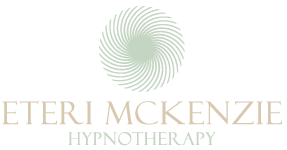Anxiety Lives in the Body: Physical Symptoms You Might Be Ignoring.
Why your body might be screaming what your mind hasn’t yet said
As a Solution-Focused Hypnotherapist in Edinburgh, I’ve seen too many people suffer silently, confused by physical symptoms that don’t “feel“ like anxiety, but are.
Anxiety isn’t just in your thoughts. It reshapes your nervous system. The body responds to stress in intensely physical ways.
In this article, I’m sharing 7 surprising physical symptoms of anxiety I see regularly in my clinic, along with the neuroscience behind them and how targeted hypnotherapy can offer lasting relief. These aren’t abstract theories; they’re patterns I’ve seen across hundreds of hours of clinical practice backed by emerging research.
1. Jaw Pain & Teeth Grinding: Your Silent Stress Gauge
Emma, a 32-year-old teacher, came to me with relentless jaw pain.
“My dentist says I’m grinding my teeth down,“ she said. “But I don’t even notice I’m clenching.”
The Science
- Bruxism affects about 20–22% of adults globally, with awake (stress‑related) bruxism closely linked to psychosocial factors like stress and anxiety.
- The amygdala—your brain’s fear center—triggers jaw muscle tension via the masseter.
- Pilot studies suggest hypnotherapy can significantly reduce bruxism symptoms, though results vary by method and duration.
Why It’s Often Missed
Many doctors treat TMJ dysfunction without exploring the anxiety beneath it.
How Hypnotherapy Helps
At my clinic, I use:
- Subconscious retraining to reduce jaw tension patterns
- Sleep-focused suggestions to calm nighttime clenching
- Biofeedback to build body awareness
“After just three sessions, my morning headaches disappeared,“ Emma reported. “I finally understood my jaw was my body’s stress meter.”
2. Gut Issues: When Anxiety Lives in Your Stomach
David, a high-performing executive, struggled with “nervous diarrhea“ before big meetings.
“I’ve had every GI test, nothing wrong. They say it’s just IBS.”
The Science
- Your gut contains 500 million neurons; yes, it’s your “second brain.”
- Stress can disrupt your digestion within minutes. Research using stomach sensors found that even simple mental tasks, like doing maths, can immediately slow down your gut’s natural rhythm.
- Research shows that up to 80% of IBS patients experience clinically significant improvement (≥50‑point drop in symptom scores) after gut-directed hypnotherapy, whether delivered via app, individual, or group sessions. Response is especially strong in those with anxiety.
What’s Really Happening
Anxiety disrupts the vagus nerve, the line of communication between the brain and the belly, causing:
- Bloating
- Nausea
- Irregular bowel movements
Our Therapeutic Approach
- Gut-directed hypnotherapy protocols
- Vagal tone stimulation techniques
- Microbiome-supportive lifestyle coaching
“For the first time in years, I can eat before events without fear,“ David told me.
3. Phantom Smells: Anxiety’s Most Unexpected Symptom
Sophie, 28, kept smelling smoke that no one else could detect.
“I genuinely thought I had a brain tumor.”
The Science
- Stress heightens sensory awareness, including smell (Frontiers in Psychiatry).
- The piriform cortex can misfire under anxiety, producing “phantom odors.”
- Studies suggest between 4% and 15% of people experience phantom smells, with occurrence particularly noted among those with anxiety disorders. Case reports even show it can be the first or only sign.
Why It Feels So Scary
Most people assume it’s neurological damage, but few suspect anxiety.
What We Do
- Sensory recalibration exercises
- Subconscious threat-response retraining
- Techniques to calm the olfactory cortex
“Once I knew it was anxiety and not a tumor, everything changed,“ Sophie said. “The smells faded as I calmed my nervous system.”
4. Skin Crawling & Itching: When Anxiety Gets Under Your Skin
The Science
- Stress activates mast cells, releasing histamine (Journal of Investigative Dermatology)
- “Psychogenic itch“ affects around 15% of people with chronic anxiety.
- Some studies and clinical reports suggest that itch intensity may decrease significantly, sometimes by over 50%, following targeted hypnotherapy. While outcomes vary, the overall trend is clear: when the mind calms, the skin follows.
3-Step Approach
- Identify the subconscious stressor behind the itch
- Break the itch-anxiety feedback loop
- Reprogram the brain’s sensitivity to sensory signals
Many clients say, “I thought it was eczema. Turns out, it was anxiety trying to speak.”
5. Tinnitus: That Persistent Ringing Might Be Stress
What We Know
- Anxiety worsens tinnitus perception in around 45% of sufferers (Journal of Clinical Medicine)
- Stress hormones can heighten auditory cortex reactivity
- In some cases, hypnotherapy improves tolerance levels more than sound therapy alone
What We Do
- Calm the stress response
- Retrain the auditory system’s threat filter
- Strengthen internal calm anchors to reduce perceived intensity
6. Temperature Dysregulation: When Anxiety Hijacks Your Thermostat
The Mechanism
Anxiety disrupts the hypothalamus, your internal regulator, causing:
- Sudden chills
- Unexplained hot flushes
- Difficulty regulating body temperature
Clients often say, “I feel like I’m overheating, but the room is cold,“ or “I can’t tell if I have a fever or if it’s anxiety again.”
7. Anxiety Rashes: When Stress Shows on Your Skin
Clinical Insight
- Studies suggest that up to 20–25% of people may experience stress-induced hives, and anxiety disorder rates are notably high (30–50%) among those with chronic urticaria, highlighting a strong mind-skin connection.”
- Neuropeptides in the skin trigger inflammation under emotional pressure
- In one clinical trial, six out of fifteen chronic urticaria patients became hive‑free after hypnotherapy, with most others also improving, and benefits lasting over a year. Additionally, the hypnotic suggestion has been shown to reduce the skin’s inflammatory response to histamine.
Skin-Calming Protocol
- Emotional mapping to identify stress triggers
- Skin-focused visualisation sessions
- Hypnotic desensitisation to lower neurogenic inflammation
“I used to get hives before dates or interviews. Now, I barely notice a reaction,“ one client shared.
Why Solution-Focused Hypnotherapy Often Succeeds Where Other Approaches Stall
Many treatments focus solely on talking about anxiety. But anxiety isn’t just mental; it’s embodied. That’s why our 4-step clinical method works:
Step 1: Neural Mapping
Identify the precise ways anxiety manifests in your unique body.
Step 2: Psychoeducation
Help you understand the science behind your symptoms—removing fear and shame.
Step 3: Subconscious Retraining
Use the brain’s neuroplasticity to rewire emotional responses.
Step 4: Embodied Healing
Anchor safety not just in your mind but in your nervous system.
Final Thought
If you’re experiencing physical symptoms that seem mysterious and random, or medical tests can’t explain them, you’re not “making it up.”
Your body is trying to communicate with you.
And the good news? You can relearn calm from the inside out.
📍Based in Edinburgh | Specialist in Solution-Focused Hypnotherapy for Anxiety
📩 Book a consultation or explore more at https://www.eterimckenziehypnotherapy.co.uk/booking/




